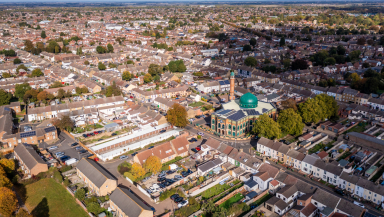
The Christian Institute has cautioned that creating a formal definition of “Islamophobia” risks eroding free speech and stifling legitimate criticism of religion.
Responding to the Islamophobia working group’s call for evidence, which closed on July 20, The Christian Institute argued that the term “Islamophobia” is confusing and unnecessary, and warned that conflating criticism of Islam with hatred toward Muslims could have chilling consequences for open debate.
“Laws already protect people of all faiths and none from discrimination, hatred and violence,” the submission stated. “A new term risks confusing criticism of Islam as a religion – a democratic right – with hostility to Muslims as people.”
The Christian Institute cited past concerns raised by more than 40 experts about the idea of “Muslimness” used in earlier proposals, saying it could be manipulated to insulate religious beliefs from public scrutiny.
“It also begs the question: who defines Muslimness?” the CI asked in its submission.
A key area of contention is whether anti-Muslim hatred should be considered a form of racism.
The Christian Institute argues that Islam, being a religion, should not be treated like a race.
It warned that concepts like “cultural racism” could lead to the disciplining of individuals for expressing mainstream views—for instance, opposing mandatory female head coverings or favouring UK law over Sharia.
Such reclassification, The Christian Institute argued, would weaken legal protections for religious discussion enshrined in Section 29J of the Public Order Act — protections that do not extend to racial categories.
The working group was set up in February to develop a non-legal definition of anti-Muslim hatred and is led by former Attorney General Dominic Grieve KC.
Grieve has acknowledged the challenge of defining Islamophobia in a way that is consistent with free expression, having previously said, “We need to balance addressing the lived experience of those who are victims of it and the right of British Muslims to feel heard and protected as equal citizens of our country, with the unwavering requirement to maintain freedom of thought and expression under law for all."
The group’s terms of reference explicitly state that any proposed definition must uphold freedom of speech, including the right to criticise or even insult religious beliefs.
A government spokesperson affirmed, “We are absolutely committed to defending freedom of speech, and any proposed definition must be compatible with the right to freedom of speech and expression.”
Despite the assurances, concerns about the implications of defining Islamophobia have emerged from across political and ideological lines.
Sir Trevor Phillips, former Chair of the Equality and Human Rights Commission, warned at a recent event that defining Islamophobia is a form of “thought policing” designed to shield one set of religious beliefs from public challenge.
“We don’t need a definition, we’ve got perfectly good legal remedies against discrimination,” he said, according to The Sun.
Others, including former Labour MP Khalid Mahmood, former Ofsted chief Amanda Spielman, and Haras Rafiq, counter-extremism advisor, have echoed these warnings.
Mahmood and Rafiq said the proposals could deter public scrutiny of Islamist extremism, while Ms Spielman cautioned that schools might be pressured to conform to conservative Islamic agendas.
Critics also point to recent examples where individuals have faced serious consequences for comments perceived as Islamophobic—even when later exonerated.
The Christian Institute’s submission referenced the 2020 suspension of Sir Trevor Phillips from the Labour Party over remarks about Muslim communities—he was reinstated over a year later.
Additionally, the National Secular Society has argued that the adoption of any definition of Islamophobia would threaten freedom of speech and legal equality.
Dame Sara Khan, an expert in human rights and counter-extremism, has warned that Islamophobia accusations are sometimes manipulated by radicals to suppress dissenting voices within Muslim communities.
The debate comes amid growing concern about the rise of what some call “backdoor blasphemy laws.”
Recent prosecutions for desecrating the Quran, and political calls for legal protections for prophets and holy books, have raised questions about the boundaries of free expression.
Critics fear that a formal Islamophobia definition could enable further censorship under the guise of tolerance.
Stephen Evans, National Secular Society Chief Executive, said: “While the intention to combat hatred is commendable, creating special protections for one particular faith will prove counterproductive to community cohesion.
“We welcome Dominic Grieve's recognition of the importance of safeguarding free speech. Individuals should be protected, not their beliefs.
“The term 'Islamophobia' should certainly be avoided due to its ambiguity and clear potential to be misused to shield the religion of Islam from criticism.
"We urge the Working Group to ensure free expression is protected."













